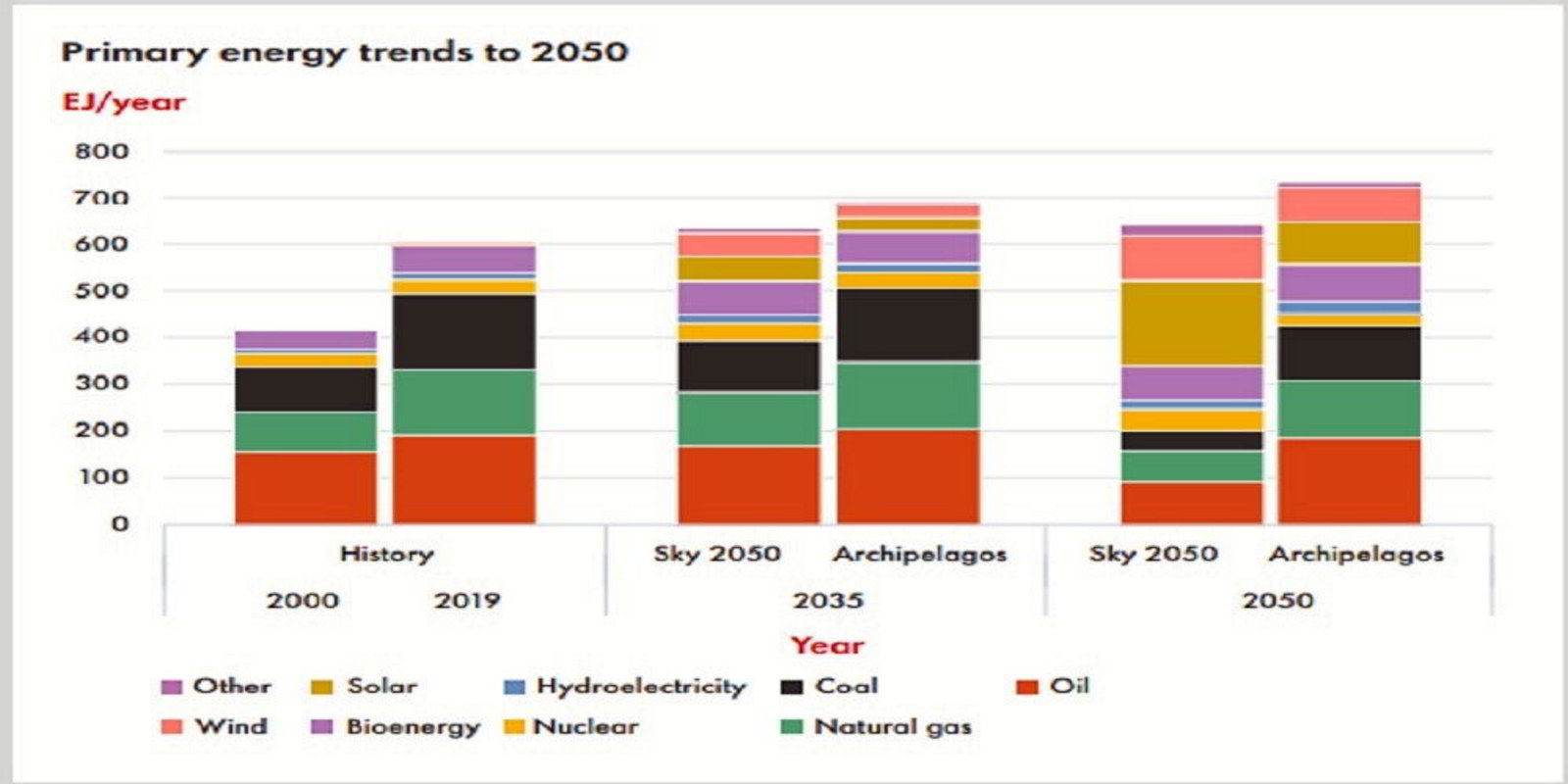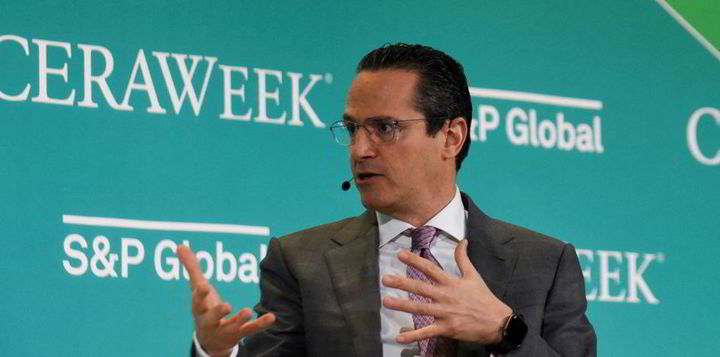Forced installation of wind turbines in the face of local opposition and compulsory retirement of fossil fuel assets are among drastic measures taken by governments to propel the world rapidly to net zero emissions under a new future energy scenario released by oil giant Shell.
The actions are among a series of “major interventions” set out in the Sky 2050 scenario — one of two in Shell’s latest crystal ball-gazing which examines the possible impacts on energy systems of a post-Ukraine invasion world where national interests and global warming fears sit side by side in shaping policy.
Released in the week that UN Secretary General Antonio Guterres called for developed economies to accelerate their net zero drives by 10 years, Shell’s ‘Sky 2050’ outlook envisages a rapidly transforming energy system shaped by concerns over climate security and a political impetus driven by younger citizens.
“What might have taken decades to negotiate now takes much less time as individual nations, cities and companies ‘just go for it!’, with the world reaching net-zero emissions in 2050,” says Shell in its new Energy Security Scenarios report.
But such an outcome is reached only with action for which Shell’s futurologists admit “no government today has such a comprehensive mandate, and few, if any, appear willing to seek it at the polls”.

Carbon capture
Measures include “the forced retirement of fossil-fuel assets, punitive carbon prices, the rapid introduction and scaling up of early-stage technologies and significant energy conservation through efficiency and even economic austerity.
Article continues below the advert
Governments are forced to restrict societal choices, such as limiting the selling of internal combustion engine vehicles and limiting meat consumption.”
The Shell study adds: “They also force through the construction of wind turbines and power lines in places where many citizens do not wish to see them, such as sites of natural beauty.”
Although net zero emission targets are reached by 2050 in this scenario, the global temperature will still increase by more than 1.5 degrees Celsius, with technologies such as direct air capture and carbon storage then used to lower it again by the end of the century.
The UN’s Intergovernmental Panel on Climate Change (IPCC) report last year set a carbon budget — a total amount of carbon dioxide emissions the world can produce before we go above our temperature goals.
Shell says that based on our current trajectory, it will be nearly impossible to stay within this limit.
The company expresses a vital need to scale up both carbon capture and direct air capture to remove the carbon dioxide from the atmosphere and store it underground.
A new IPCC report published this week claims that we are approaching the point where it will not longer be possible to stay under the targeted 1.5 degree Celsius limit and agrees that carbon dioxide and direct air capture will be necessary to make this happen, if it is scaled up quickly.
